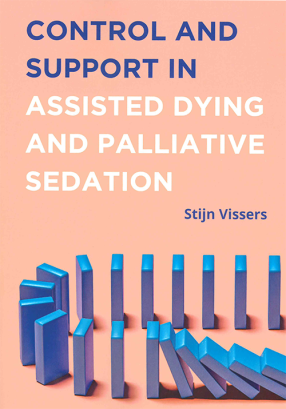Author: Stijn Vissers
Date: 13-10-2023
Supervisors:
- Prof. Luc Deliens, End-of-Life Care Research Group, Department of Family Medicine and Chronic Care, Vrije Universiteit Brussel
- Prof. Kenneth Chambaere, End-of-Life Care Research Group, Faculty of Medicine and Health Sciences, Universiteit Gent
Co-supervisors:
- Prof. Joachim Cohen, End-of-Life Care Research Group, Department of Family Medicine and Chronic Care, Vrije Universiteit Brussel
- Dr. Sigrid Dierickx, End-of-Life Care Research Group, Faculty of Medicine and Health Sciences, Universiteit Gent
SUMMARY OF THE DISSERTATION
Assisted dying -including euthanasia and physician-assisted suicide- and continuous deep sedation until death (CDS) –i.e., a specific form of palliative sedation- have become increasingly prevalent medical practices at the end of life over the last decade. However, research has shown that patients, relatives, and healthcare professionals may encounter various difficulties and challenges in these practices. These difficulties and challenges may be linked to their underlying control and support practices. There is growing consensus that, to address potential for improvement and to enhance the experiences of those involved, a better understanding of control and support practices is needed. This prompted the two main aims of this dissertation: 1) to describe current control and support practices in euthanasia, and explore their potential for improvement in Flanders and Brussels, Belgium; and 2) to describe current control and support practices in CDS, and explore their potential for improvement in Belgium. Four studies were conducted. First, we explored the experiences of attending physicians and trained consultants regarding their peer consultations for a euthanasia request assessment.
In the second study, we examined the support needs of patients requesting euthanasia and their relatives. In the third study, we explored the good practices that healthcare professionals deploy and identify in their euthanasia practices. Finally, we studied physicians’ frames of control measures for CDS, and their experiences of environmental factors affecting their CDS practices. Furthermore, this dissertation provides several important implications for practice, policy, and future research.


